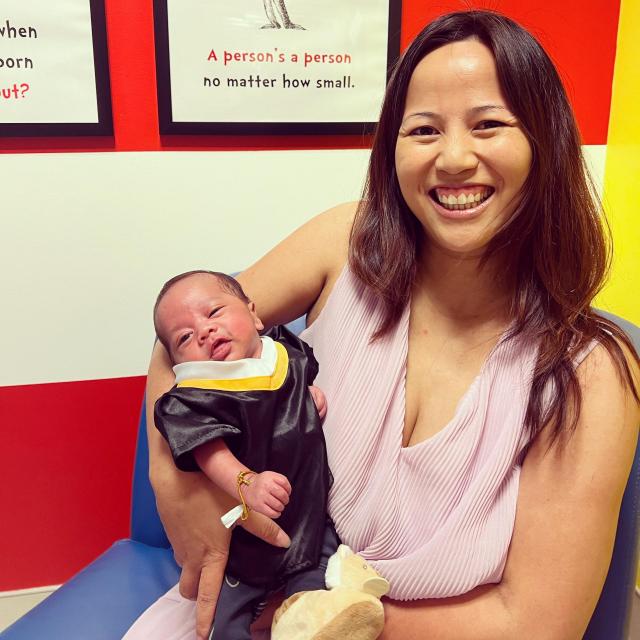A summer vacation and the birth of a child should create happy memories, but for Trevor Krapf and Jennifer Wu, the reality of being part-time and having tenuous healthcare turned both their experiences into financially tragic near misses.
Krapf, a part-time faculty member at Yuba College, and now president of the part-time only Yuba Federation of Teachers was out on a boating trip on the American River, when a seemingly innocuous mosquito bite would later transform into West Nile virus. But this was not something Krapf would learn right away. When he first developed a rash and a high fever, doctors were uncertain about the cause, and it was over a month before he was properly diagnosed.
During this whole time, Krapf, who describes himself as a “part-time” full-timer who teaches Political Science at three community colleges and one CSU school, continued to teach. Despite the heavy teaching load, he was without insurance because he could not afford to pay for a Covered California plan.
His condition worsened. He developed bilateral pneumonia, lost his hearing, and his arms physically locked up. As he would describe in a recent speech he gave to the Yuba College Board of Trustees in support of part-time healthcare, “At times it felt as if someone was striking my arms, neck, and head with a baseball bat.”
Despite all this, driven by a fear of bankruptcy and a desire to work with students, he kept teaching, and not simply at a cost to himself. “There is no doubt that my reluctance to seek further treatment due to cost and the stress of the growing financial burden I was facing impacted my teaching,” he said to the board.
In the end, after two emergency visits and months of recovery, Krapf was left with a $30,000 medical bill. Facing financial ruin, it was only by the grace of a hospital charitable association that Krapf had his bill forgiven.
Mindful of the good fortune he had, Krapf noted to the board,” Others may not be so lucky. Had I needed to pay those health costs in full, I may have been forced to leave teaching in search of a more stable career.”
In sum, Krapf stated, “I believe the success of our students is directly tied to the physical, mental, and financial health of our part-timers who make up the majority of our workforce.” Krapf is currently engaged in negotiations to secure part-time healthcare faculty with Yuba admin and is seeing progress.
For Jennifer Hu, a part-time counselor at El Camino College, the birth of her son came with a near miss into almost unimaginably crippling debt.
Though part-time, Hu had been working on special assignment for the district in a position that afforded her access to full-time faculty healthcare. But when the assignment ended on August 1 of this year, she was no longer receiving coverage. Her husband, who is a healthcare worker, also had his work assignment end on August 1 , leaving him without access to healthcare as well.
Worse yet, Hu was not informed of her loss of coverage by the district until the morning of August 14. Desperate, Hu contacted the benefits specialist, and faced with paying for the expensive full time full-time faculty plan via COBRA, or a less expensive Covered California plan costing $590 per month, she opted for the latter. Unfortunately, the Covered California plan would not kick in until September 1.
That very night, Hu went into labor, had an emergency C-section, and gave birth to her son, two months premature. The very next morning, while in her hospital bed and her son in the NICU, Hu managed via email to retain coverage of the full-time faculty plan via COBRA. Hu’s son would remain in the hospital for over a month before she was able to bring him home.
It wasn’t until several weeks later that Hu received a statement telling her that had she not had coverage, the cost would have been in excess of $500,000.
Even now, Hu says she can’t process this. “At the time, all I could think about was the health of my son and myself.” Now on disability, Hu is receiving coverage through Medi-Cal, but there are challenges ahead. The El Camino district’s recent agreement to reimburse part-time faculty $3,300/semester may be an improvement over the $75/semester part-time faculty had received previously, but it will not cover the $1,500 /month plan Hu will need to cover herself and her family.
The rare good fortune that Krapf and Hu had in covering their medical costs belies the reality that part-time healthcare precarity leaves them ever anxious and uncertain. Offering full-time equivalent healthcare to these faculty costs districts nothing but would mean everything to those they provide it to.
Despite the precarity, a handful of locals have fought hard and won expanded health benefits for their members. This fight is far from over, but time and time again solid and tenacious organizing has proven it can beat a system designed to work against part-timers.



